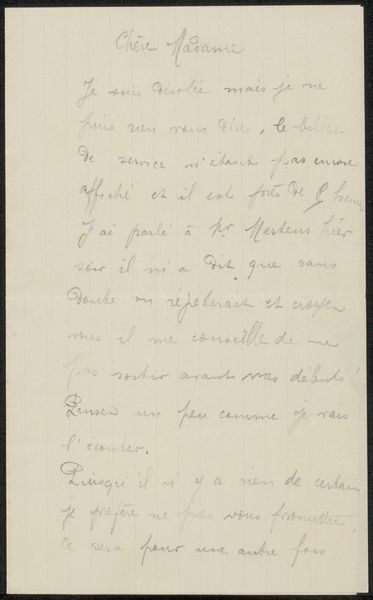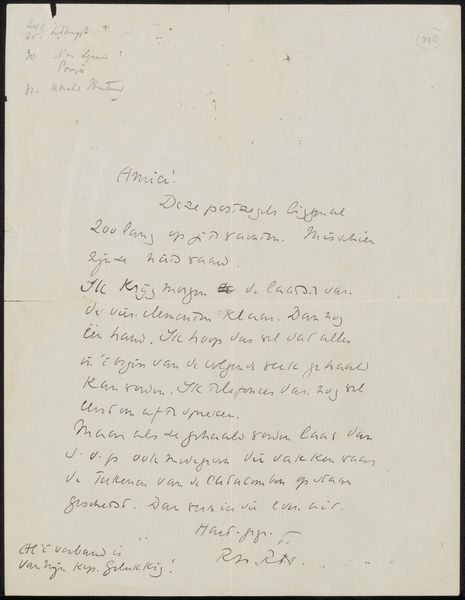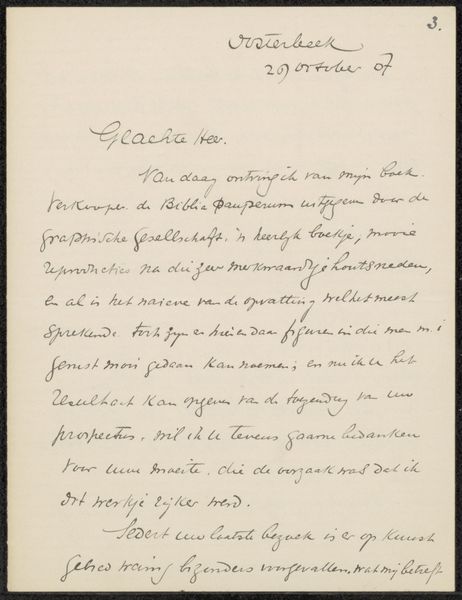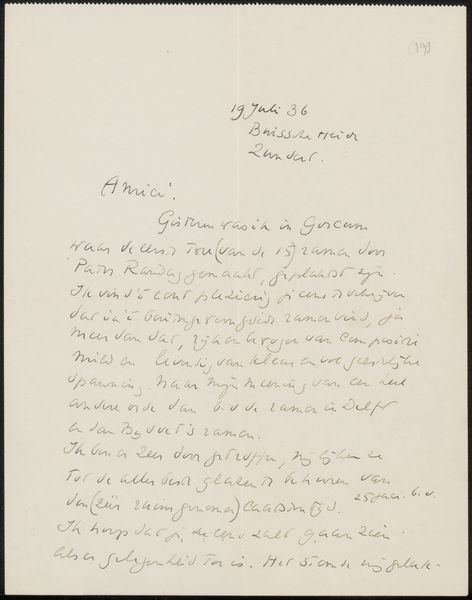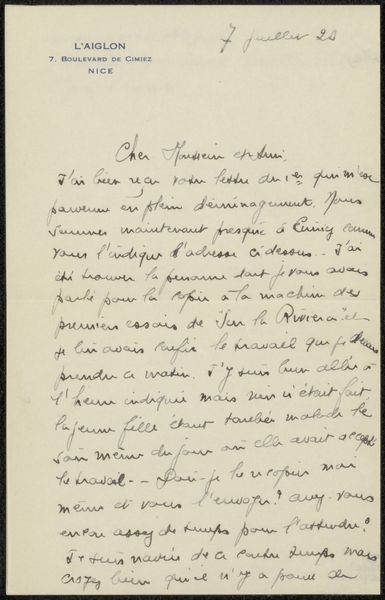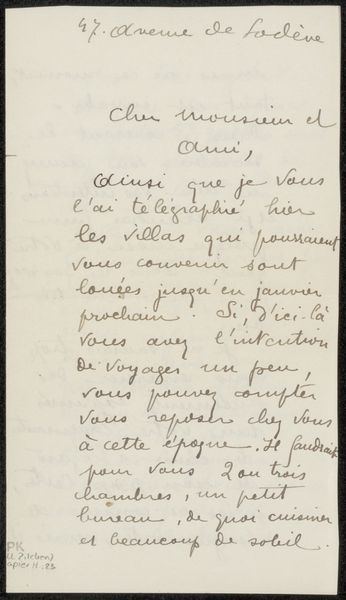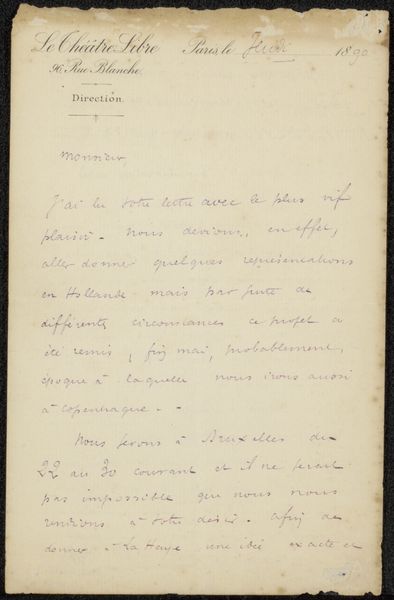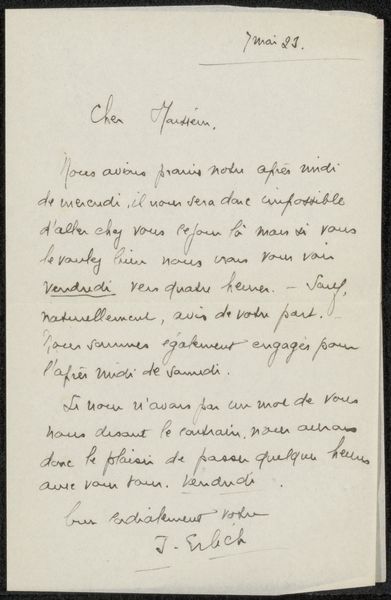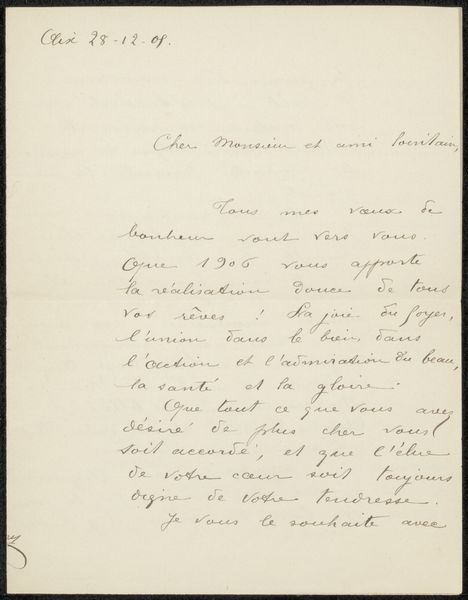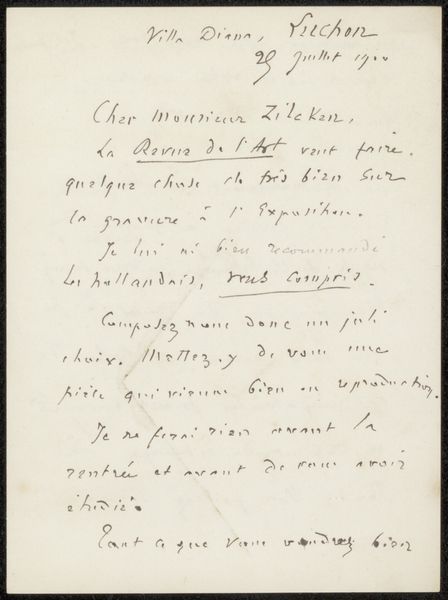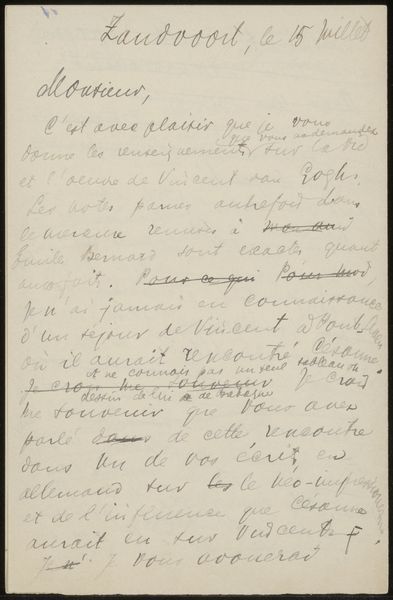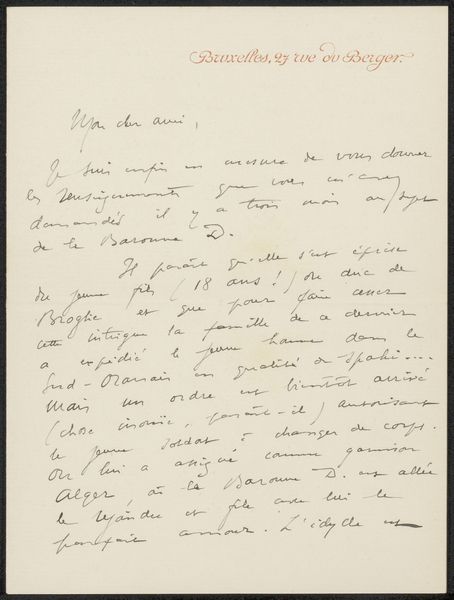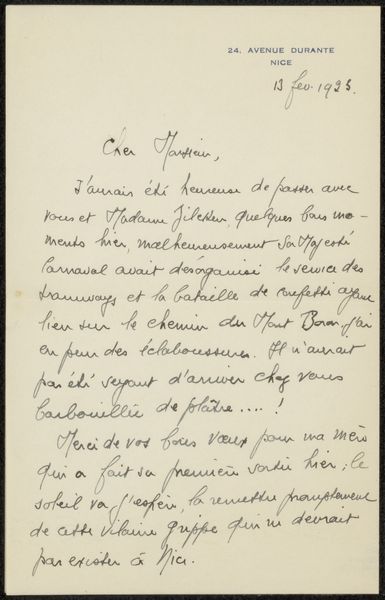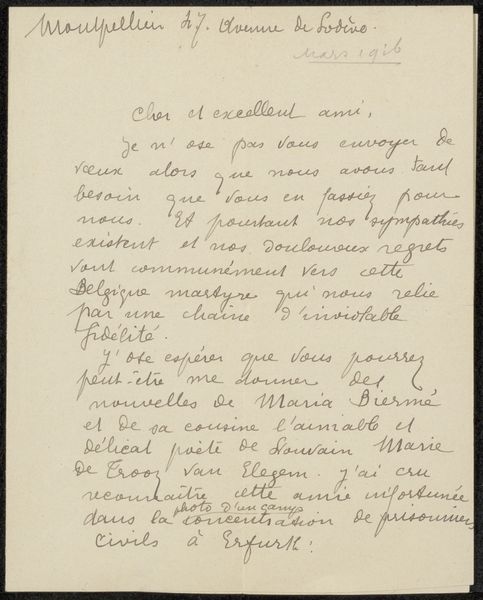
#
script typography
#
old engraving style
#
hand drawn type
#
personal sketchbook
#
hand-drawn typeface
#
ink drawing experimentation
#
pen-ink sketch
#
pen work
#
sketchbook drawing
#
coloring book page
Copyright: Rijks Museum: Open Domain
This letter, composed by Charles Ephrussi, a prominent art historian of the late 19th century, is not just a piece of correspondence but a symbolic artifact. Note the careful formation of each letter, a script that echoes the grand tradition of humanist scholarship. The act of writing itself is a potent motif—the hand of the author guiding the pen, leaving its mark upon the page, a direct link to their thoughts and intentions. We can trace this motif back through illuminated manuscripts to ancient hieroglyphs, each stroke imbued with meaning and power. Writing, in this sense, becomes an almost sacred act, a means of preserving and transmitting knowledge across generations. Consider how this act of writing might resonate on a deeper, almost primal level. It's an assertion of self, a desire to leave a lasting impression on the world. This primal urge for immortality, to transcend our mortal existence through our deeds and creations, drives much of human endeavor. It is a symbol of enduring legacy, resurfacing and evolving through various forms of expression across time.
Comments
No comments
Be the first to comment and join the conversation on the ultimate creative platform.
